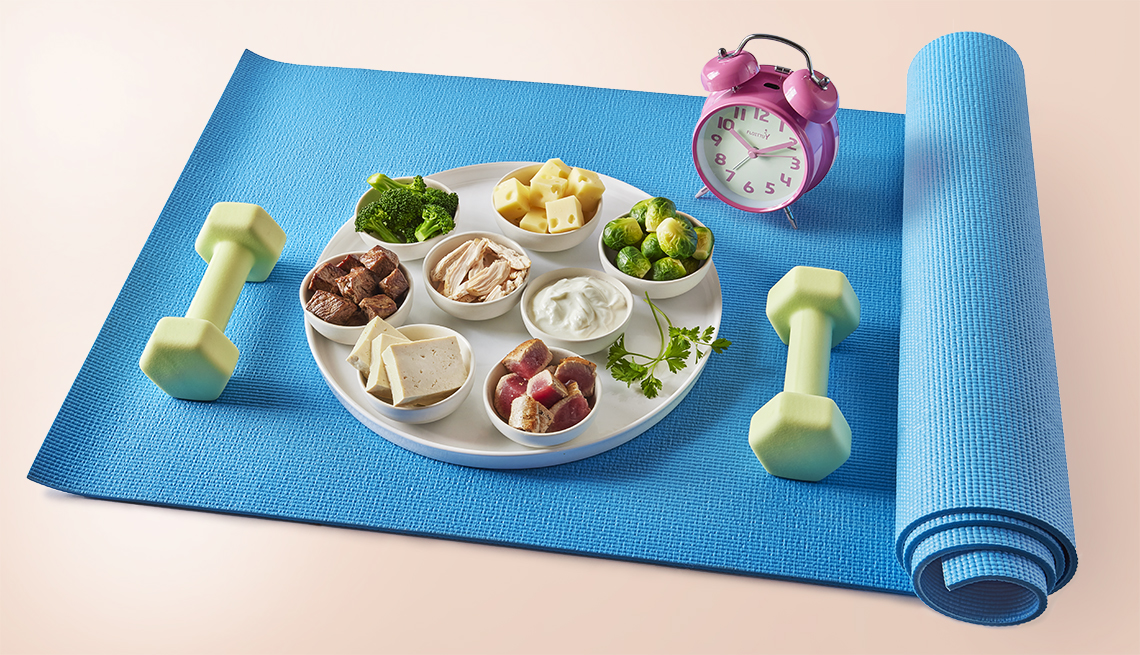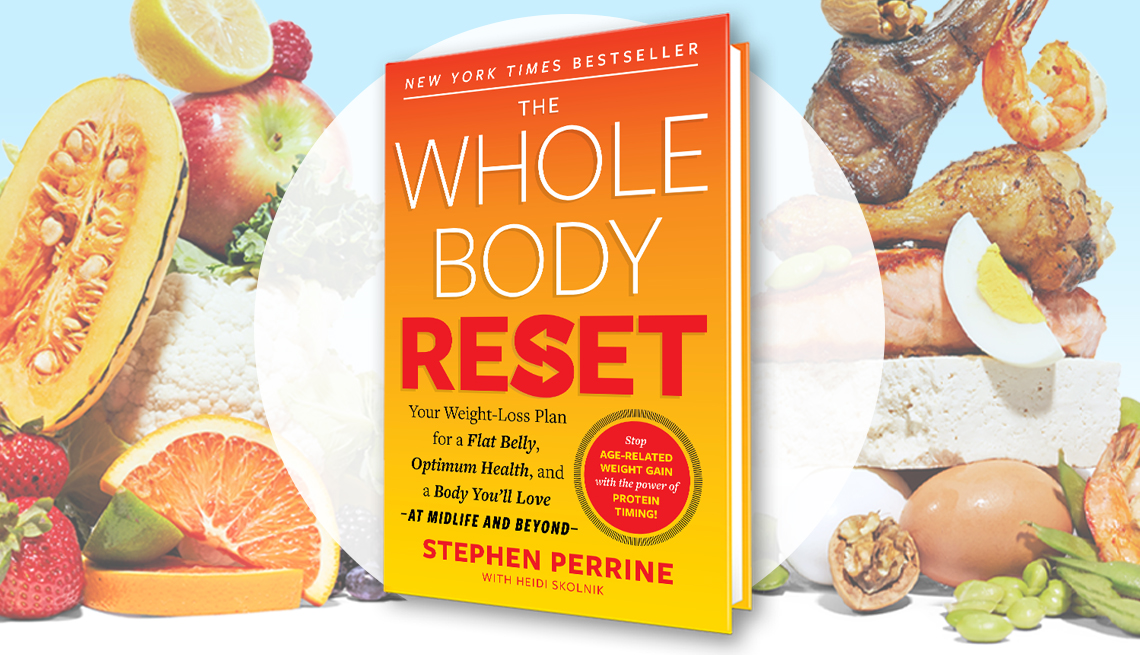AARP Hearing Center


Everyone knows that cardio exercise is crucial for overall health. But the secret to staying strong and vital for life isn’t just in walking, running, biking, swimming and other forms of aerobic fitness. It’s in your muscles. In a 2021 review of 16 studies from around the globe, researchers found that just 30 to 60 minutes a week of muscle-strengthening, or “resistance,” exercise increased life expectancy by 10 to 17 percent. What counts as muscle-strengthening exercise? Lifting weights, of course, but also yoga, Pilates, calisthenics and even carrying the groceries (or a grandchild).
Join the AARP Weight Loss After 50 Challenge
Learn what small changes you can make for health and wellness as we age. Step by step, we'll:
- Show you the secrets to losing weight
- Give you guides to healthy foods
- Provide dozens of delicious new recipes to try
- Help you embrace a whole new way of eating
Eating protein in the proper amounts, at the proper time, is also crucial for preserving muscle. As we outline in AARP’s New York Times best-selling book, The Whole Body Reset, science shows that women 50 and older need at least 25 grams of protein at every meal (30 grams for men) to stimulate protein synthesis, the process for building and maintaining muscle. Studies show that when people in their 60s combined this style of eating, known as “protein timing,” with resistance exercise, their bodies respond as if they were in their 20s. Here’s why combining resistance exercise and protein timing is so important for your health.
1. You’ll keep your brain healthy
One study looked at 970 people living in senior communities who had no evidence of cognitive decline. Researchers put the subjects through a series of strength tests, measuring their upper and lower extremities. Over the next 3.6 years, 15 percent of the subjects developed Alzheimer’s disease. But their risk was strongly determined by where they fell on the strength scale: For every 1 point increase in muscle strength, a subject’s risk of Alzheimer’s dropped by 43 percent.
2. You’ll reduce your risk of future weight gain
A low level of muscular fitness was associated with higher odds of gaining at least 22 pounds over the ensuing 20 years, one study found.
3. You’ll keep your blood pressure under control
In another study, higher levels of muscular strength were associated with a reduced risk of developing high blood pressure among men with prehypertension.














































































More on Health
Tips for Week One of Your Weight-Loss Plan
Ready to drop pounds starting now? Here's how experts suggest you kick off your efforts8 Superfoods for Your Immune System
Add these protective powerhouses to your diet to get ready for cold and flu season … and beyondWhat Should Your Diet Be Like After 50?
As our bodies change, so do our nutritional needs